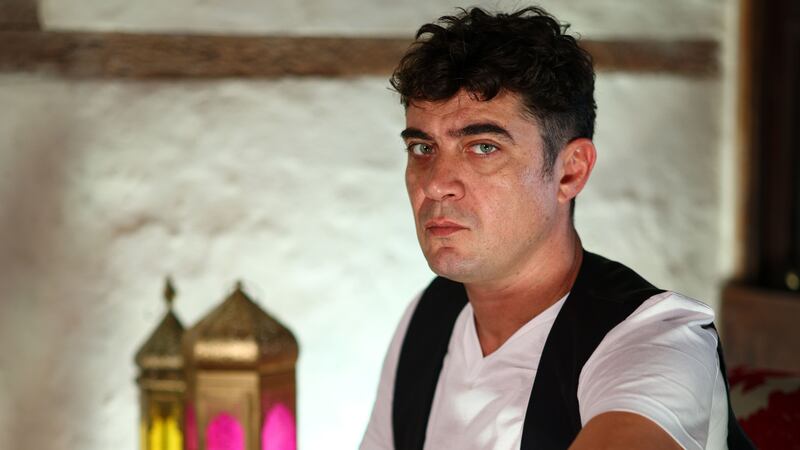In keeping with a tendency to arrive just as the party ends, I experienced my first-ever “Vibe for Philo” last week.
The annual commemoration of Thin Lizzy frontman Phil Lynott was turning 36, the age at which he died. Alas, for that and related reasons, organisers had decreed that this year’s event would be the last.
Still, I did at least get there early for the final instalment, mainly because my friend Des Gill – a regular at the January 4th pilgrimage for many years – warned that the all-important souvenir T-shirts would be sold out by 8pm.
So we were there for the start of a marathon concert that, although comprised almost entirely of Thin Lizzy songs, played by various admirers with little or no repetition, kept the Button Factory rocking until the early hours of January 5th.
READ MORE
Among other things, it was a reminder of the extraordinary range of styles the band went through from start to finish of their career.
Although usually pigeon-holed as hard rock or heavy metal, Lizzy’s metallic content varied greatly: hence a concert within this year’s concert featuring the brilliant blues guitar of Eric Bell, an early member of the group before artistic differences forced him out.
But mainly, in case I’d forgotten, the 36th Vibe was a reminder of the sheer greatness of Lynott, whose poetic sensibility and flair for a lyric elevated Thin Lizzy from being the merely good band they could have been to something special.
With his looks and charisma, Lynott was born to be a rock star. Growing up in Crumlin in the late 1950s and 60s, he must have had 90 per cent of Dublin’s known reserves of coolness then. But from an early age, he was also infected – in however mild a form – with the Irish literary tradition.
It’s no coincidence that some of Lizzy’s earliest shows were at the Peacock Theatre, the Abbey’s experimental side stage. In the hip and groovy early 1970s, management there thought they could attract a new audience via lunchtime pop concerts featuring the gateway drug of short theatrical interludes.
On one such occasion, Christmas 1970, Lizzy fans were treated to a 15-minute extract from Günter Grass’s “The Plebeians Rehearse the Uprising” (itself a satire on Bertolt Brecht’s 1953 production of Coriolanus in East Berlin, when a real-life workers’ revolt was taking place outside).
The Irish Times reviewer “GDH” (George Hodnett, jazz critic and composer of “Monto”) found the amplification “deafening, of course”. But he noted with approval the Peacock’s plan to increase theatrical dosage over time, “with complete plays [...] set in the pop music matrix”.
Lynott felt perfectly at home in the Abbey and the ghosts of Yeats and Synge haunted his lyrics, even if it took him a few more years to find a happy medium between the pop music matrix and poetry.
One of Lizzy’s unsuccessful early albums was Vagabonds of the Western World (1973), which provoked only a riot of indifference.
But by the mid-1970s, there were turning out a string of Lynott-composed classic songs, including The Boys are Back in Town, Don’t Believe a Word, and Dancing in the Moonlight, all of which married hard-driving rock with a lyrical deftness for which heavy metal has never been famous.
They also became one of the world’s best live acts, as immortalised on the album Live and Dangerous. Unfortunately, the lifestyle that brought was dangerous too, eventually causing Lynott’s premature death in January 1986.
The annual commemoration begun a year later had roots in a suggestion made near the end to his friend Smiley Bolger: “Do a vibe for me, sometime.”
It wasn’t called that at first. But according to PR man Hugo McGuinness, one of the interviewees in Marcus Howard’s documentary “The Last Vibe for Philo” (now on YouTube), the concept of a “vibe” went back to those Abbey/Peacock events of the 1970s.
It referred a combination of music, poetry, and drama. And that tradition was maintained at this year’s event via the Vibe’s poet-in-residence John Cummins, who performed his tribute in verse.
A whole generation of Vibers has grown up since the first commemoration. I know this because, back in the late 80s, my friend Des was living in Paris and had a new-born daughter. Like Phil Lynott’s “baby girl”, she changed his world and so, also as in the song, is called Sarah. She was at the concert last week too.
The latest vibe was also notable for absentees, however: including Lynott’s mother Philomena, who died in 2019, and Smiley Bolger, who was unwell. After completing the symmetry of 36 annual commemorations, the founding organisers have now had enough. But perhaps a younger generation will yet revive the event. Who knows? There might even be an opening for the Peacock.













